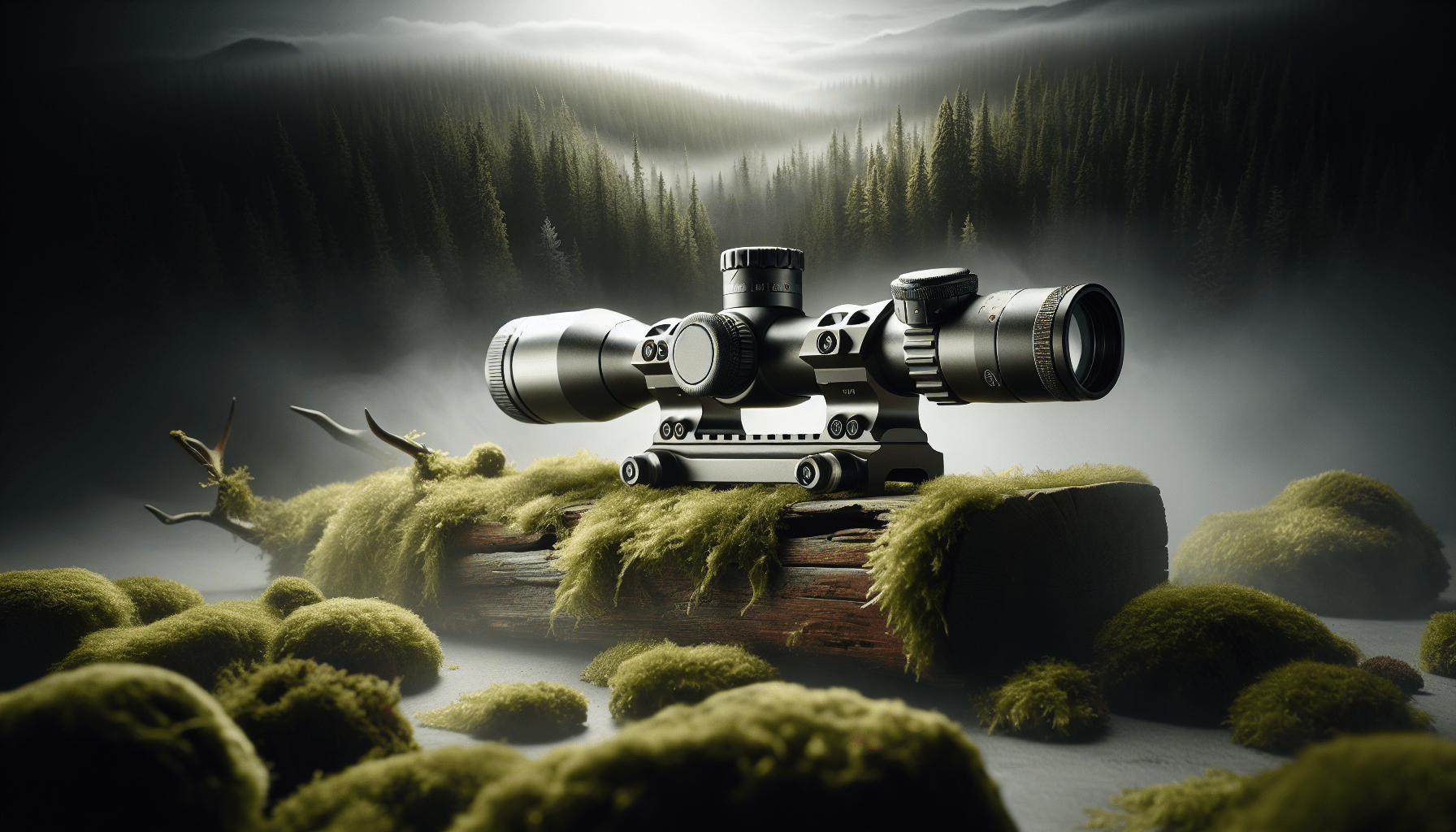Have you ever wondered whether there are specialized hunting scopes for different types of hunting? When it comes to hunting, having the right equipment can make all the difference. Whether you’re tracking game in a dense forest or in open terrain, the gear you choose will have a significant impact on your success. Among the essential items for any hunter is the right scope. But with so many options available, how do you determine which one is best for your specific hunting needs?
Understanding the Importance of a Hunting Scope
A hunting scope is a vital accessory for any hunter, as it aids in precision and accuracy. Without it, the chances of hitting your target decrease significantly, especially at long distances. A good scope helps you to see your target clearly, aim accurately, and shoot with precision, regardless of the environment or weather conditions.
What Makes a Scope Ideal for Hunting?
The ideal scope should give you clear visibility and superior magnification. It should also be durable, lightweight, and weather-resistant. Furthermore, the adjustments for windage and elevation should be smooth and precise. These characteristics ensure that once you’ve sighted your target, you can maintain a steady hold for an accurate shot.
Specialized Hunting Scopes: Why Do They Matter?
Different hunting environments and prey types often require specialized equipment to achieve the best results. This is where specialized hunting scopes come into play. Specialization in scopes means they are designed with specific features to match various hunting conditions, game, and methods.
Types of Specialized Scopes
There are several types of specialized hunting scopes each tailored for different hunting scenarios. Understanding the various types available can help you make an informed decision when selecting one that suits your needs.
Low-Light Hunting Scopes
Low-light hunting scopes are ideal for times when animals are most active, such as dawn or dusk. Such scopes are engineered to provide the best visibility in poor lighting conditions.
Long-Range Hunting Scopes
Long-range hunting scopes are designed for hunters who need to take shots over extended distances. These scopes often have higher magnification to bring distant targets into view and finer adjustment features for improved accuracy at long ranges.
Night Vision Scopes
For hunting nocturnal game, night vision scopes are essential. They employ technology to amplify available light to provide a visible image in complete darkness.
Tactical Scopes
Tactical scopes are versatile with features that suit a variety of applications, including both tactical and hunting purposes. These are often favored by those who require quick adjustments and high durability.
Selecting the Right Scope for Your Game
Choosing a scope often depends on what you’re hunting. Different games have unique traits that make certain scopes more suitable than others.
Deer Hunting
For deer hunting, a scope with moderate magnification, an objective lens that offers a wide field of view, and low-light performance is key. Deer are often found in wooded areas where shots might need to be taken quickly.
Varmint Hunting
Varmint hunting typically requires a scope that can handle long distances, as varmints are often small and located at greater distances. A higher magnification scope is usually necessary for accuracy.
Bird Hunting
Hunters targeting birds may benefit from a scope that allows fast target acquisition and a wide field of view. Although less commonly used than in rifle hunting, some find scopes advantageous for certain bird species.
Dangerous Game Hunting
Safety is paramount when hunting dangerous game. Thus, a scope that provides a wider field of view and allows for quick adjustments is essential. Durability and reliability in harsh conditions are also crucial.
Key Features to Consider in a Hunting Scope
Several key features determine whether a hunting scope is good and suitable for your needs. Understanding these features can help you choose the best scope for your hunting endeavors.
Magnification and Objective Lens Size
Magnification denotes how much closer an object in view appears, while the objective lens size indicates how much light the scope can gather. Each type of hunting will require different balances of these features.
Reticles
Reticles, or crosshairs, are what you use to line up your shot. They come in different styles, each with benefits suited to certain types of shooting or preferences.
Field of View
This term refers to the width of the area you can see through your scope. A larger field of view helps when tracking moving animals, while a narrower view might offer better detail on stationary ones.
Lens Coatings
Lens coatings improve light transmission, reduce glare, and enhance durability. High-quality coatings can make the difference between making a shot and missing due to unclear visibility.
Weather Resistance
A good scope should withstand extreme weather conditions. Features such as fog-proof, water-proof, and shock-proof construction increase reliability and performance in diverse environments.
Balancing Performance and Cost
While it can be tempting to choose the most advanced or expensive scope, the best choice is usually one that offers the needed features while staying within your budget. It’s important to weigh the benefits of certain features against their cost, considering how frequently and in what manner you’ll use your scope.
Are Expensive Scopes Always Better?
Cost does not always correlate directly with performance. Expensive scopes often offer advanced features, better durability, and superior optics, but more affordable options can still provide excellent performance for typical hunting needs.
Conclusion: The Right Scope for the Right Hunt
The hunt for the ideal hunting scope isn’t just about picking one off the shelf. It’s about matching your hunting style, game, and environment with a scope that enhances your ability and experience. Whether you’re a seasoned hunter or just starting, understanding the specialized options available to you is vital. Remember that while a scope is an important tool, it’s your experience and skill that truly make the hunt successful.
By taking the time to research and understand the different scopes and their applications, you can ensure you have the best chance of making your hunt both successful and enjoyable. Happy hunting!

